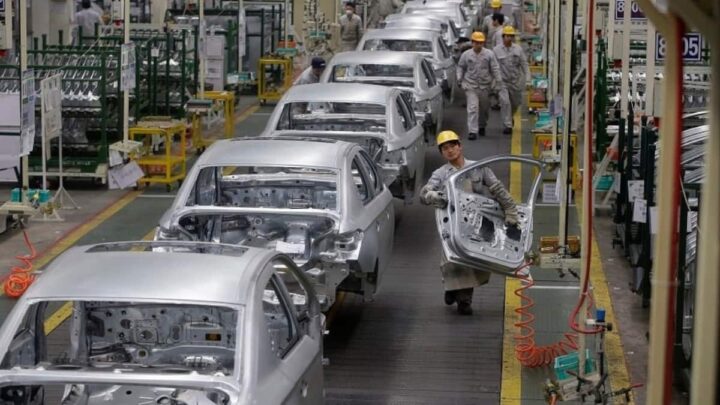Not long ago, China did not have the strength to respond to Western manufacturers. However, the country has evolved and, in a curious turn of events, the European Union (EU) appears to want to force the Asian country to hand over its battery technology.
For years, China has been an attractive market for Western manufacturers. To such an extent that the Chinese authorities imposed high customs duties on cars produced in other regions of the world and thus encouraged foreign companies to form joint ventures with local groups, so that they can manufacture vehicles in the country.
From this policy, which ended in 2022, emerged joint ventures such as Changan Ford, Dongfeng Nissan, FAW-Volkswagen and SAIC Volkswagen. In this way, an interesting flow of technological know-how was established.
China's Growth Trembles and EU
Currently, Chinese companies manufacture cars capable of rivaling European, American and even Japanese models - not least in terms of price.
In fact, thanks to strong state support, considered anti-competitive by the EU, and the transition to electric mobility, Chinese companies are expanding, conquering several markets globally.
Considering Chinese growth, the EU erected protectionist barriers, in the form of customs duties on electric cars manufactured in the Asian country. Since then, the two entities have been in talks in order to resolve this commercial dispute.

According to a report from the Financial Timesthe EU wants to force Chinese companies to transfer their technology and intellectual property to European groups, in exchange for access to subsidies.
Brussels is apparently preparing a subsidy program worth more than a billion euros to develop a European battery supply chain.
Now we just have to wait to hear the Chinese response. It should be noted, however, that China advised its manufacturers to "store" the technology within the country - prioritizing the export of kits, instead of manufacturing complete cars in Europe -, with the aim of preventing its technology from reaching Western competitors. .
Source: pplware.sapo.pt


